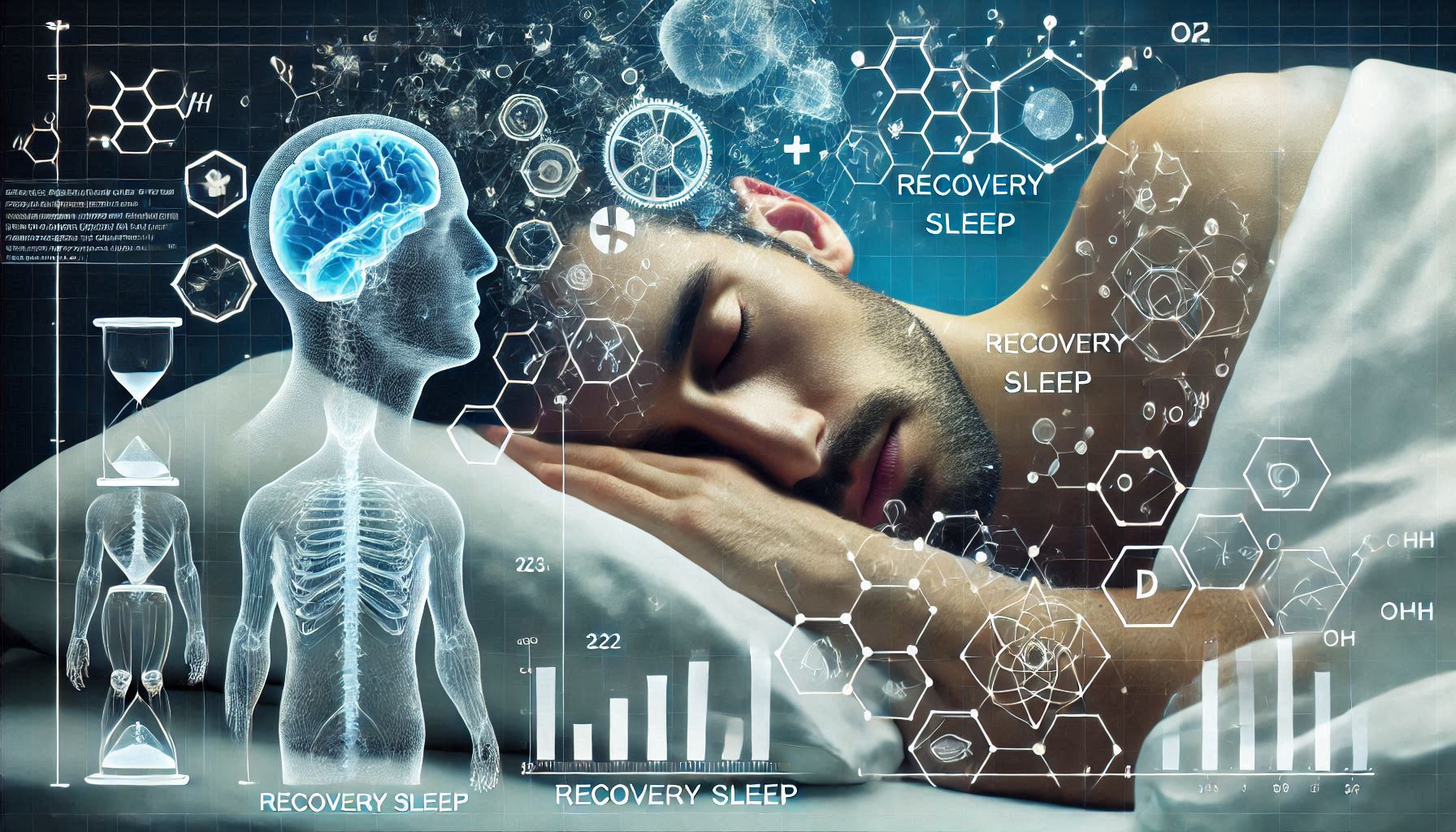
Sleep is often the first casualty in our fast-paced, always-on world. Yet, it’s as vital to our health as air, food, and water. In fact, up to 70 million Americans suffer from sleep disorders, according to the American Sleep Association (ASA). This isn’t just about feeling tired the next day—chronic sleep deprivation can have profound implications for both physical and mental health. Understanding the science of sleep reveals why prioritizing it is essential and how it serves as the cornerstone of overall well-being.
The vital role of sleep in health
Sleep is not a passive state where the body simply rests. It’s a dynamic and critical process during which the body and mind perform essential tasks that can’t occur during waking hours. Think of sleep as the body’s natural reset button—a time when physical restoration, cognitive processing, and emotional regulation occur simultaneously.
Immune system
During sleep, the immune system releases cytokines, proteins that play a pivotal role in combating infections and inflammation. These cytokines are like messengers, signaling immune cells to target areas of infection or injury. A study found that sleep deprivation reduces the production of these protective cytokines and infection-fighting antibodies. This makes the body more susceptible to illnesses like the common cold and influenza.
Moreover, recent research in 2022 by the National Institutes of Health (NIH) indicates that even a single night of insufficient sleep can impair immune function. This underscores the importance of regular, quality sleep in maintaining a robust immune system.
Hormone regulation
Sleep plays a crucial role in regulating hormones that affect stress, metabolism, and growth:
- Cortisol Regulation: Cortisol, often called the “stress hormone,” should decrease during the early stages of sleep, allowing the body to enter a state of relaxation and recovery. However, inadequate sleep keeps cortisol levels elevated, contributing to chronic stress, anxiety, and even weight gain. Elevated cortisol can also disrupt the sleep cycle further, creating a vicious cycle.
- Insulin Sensitivity: Sleep helps maintain proper insulin function, essential for regulating blood sugar levels. Studies showed that just four days of sleep deprivation can lead to decreased insulin sensitivity, increasing the risk of developing type 2 diabetes.
- Growth Hormone Release: During deep sleep, particularly in the slow-wave stages, the pituitary gland releases growth hormone. This hormone is vital for muscle repair, bone growth, and overall metabolism. It’s especially important for children, adolescents, and athletes who require physical recovery.
Heart health
Quality sleep is a cornerstone of cardiovascular health. During sleep, blood pressure naturally dips in a phenomenon known as “nocturnal dipping.” This nightly rest allows the heart and blood vessels to recover from the day’s stresses. Chronic sleep deprivation disrupts this process. A comprehensive study published in the Biomedical Reports in 2023 found that individuals sleeping fewer than six hours per night had a higher risk of developing hypertension and cardiovascular disease compared to those who slept seven to eight hours.
Sleep deprivation also affects heart rate variability (HRV), an important marker of cardiovascular health. Lower HRV is associated with increased stress and a higher risk of cardiac events.
Science of sleep: how it works at the cellular level
The impact of sleep extends deep into our cells, influencing fundamental biological processes.

DNA repair
Throughout the day, our cells accumulate damage from environmental factors like ultraviolet (UV) radiation and oxidative stress. During sleep, the body initiates DNA repair mechanisms, such as nucleotide excision repair (NER), to fix these errors. Sleep facilitates chromatin remodeling, allowing repair enzymes better access to DNA strands. A study highlighted that sleep deprivation hampers these DNA repair processes, leading to genomic instability and increasing the risk of chronic diseases, including cancer.
Brain health: the glymphatic system
Sleep is essential for brain maintenance. The glymphatic system, discovered in 2012, becomes highly active during sleep. It clears out toxins and metabolic waste products like beta-amyloid and tau proteins, which are linked to Alzheimer’s disease. As neurons shrink during sleep, the interstitial space between brain cells increases by up to 60%, allowing cerebrospinal fluid to wash away these waste products more efficiently. Without adequate sleep, these proteins accumulate, increasing the risk of neurodegenerative diseases.
Energy and metabolism
Sleep is crucial for restoring the body’s energy balance. During deep sleep, levels of adenosine triphosphate (ATP)—the energy currency of cells—increase. This replenishment is vital for fueling cellular processes during waking hours. Additionally, the metabolic rate decreases during sleep, reducing the demand on cells and allowing them to recover from daily wear and tear. A study found that sleep deprivation leads to mitochondrial dysfunction, impairing energy production and leading to increased fatigue and neural inflammation.
The consequences of sleep deprivation
Chronic lack of sleep doesn’t just make you feel tired—it can trigger a cascade of negative health outcomes.
Chronic inflammation and immune dysfunction
Sleep deprivation elevates levels of pro-inflammatory cytokines, contributing to systemic inflammation. Over time, chronic inflammation can lead to conditions like cardiovascular disease, type 2 diabetes, and autoimmune disorders. Research found that even partial sleep loss increases markers of inflammation, indicating that both the quantity and quality of sleep are important for immune function.
Cognitive decline and memory loss
Sleep is essential for consolidating memories—a process where short-term memories are transformed into long-term ones. This occurs predominantly during REM (Rapid Eye Movement) sleep. Lack of REM sleep impairs this process, affecting learning and memory retention. Sleep deprivation also impacts the prefrontal cortex, responsible for decision-making, attention, and impulse control.
Emotional instability and mental health
Sleep affects the limbic system, particularly the amygdala, which processes emotions. Without sufficient sleep, the amygdala becomes overactive, leading to heightened emotional responses. This can manifest as increased irritability, anger, and difficulty managing stress. Chronic sleep loss is closely linked to mental health disorders such as depression and anxiety.
Metabolic disorders and weight gain
Sleep deprivation disrupts the balance of leptin and ghrelin, hormones that regulate hunger and satiety. Leptin levels decrease (reducing feelings of fullness), while ghrelin levels increase (stimulating appetite). This hormonal imbalance can lead to overeating, especially cravings for high-calorie, carbohydrate-rich foods.
Accelerated aging and cellular damage
Sleep deprivation accelerates telomere shortening. Telomeres are protective caps at the ends of chromosomes, and their length is a marker of cellular aging. Shorter telomeres are associated with an increased risk of age-related diseases like cardiovascular disease and certain cancers.
How to get high quality Sleep
Achieving restorative sleep is about more than just the number of hours spent in bed. It involves reaching the deeper stages of sleep where the most significant restorative processes occur. Here are practical strategies to enhance sleep quality:
- Establish a Consistent Sleep Schedule: Go to bed and wake up at the same time every day, even on weekends. Consistency reinforces your body’s natural circadian rhythm, making it easier to fall asleep and wake up feeling refreshed.
- Create a Sleep-Conducive Environment: Keep your bedroom cool (around 65°F or 18°C), dark, and quiet. Use blackout curtains, earplugs, or white noise machines to eliminate disturbances. Consider investing in a comfortable mattress and pillows that support your preferred sleep position.
- Develop a Relaxing Bedtime Routine: Engage in calming activities before bed, such as reading, gentle stretching, or taking a warm bath. Mindfulness meditation and deep-breathing exercises can also help prepare your mind for sleep.
- Limit Exposure to Screens Before Bed: The blue light emitted by phones, tablets, and computers can interfere with melatonin production, the hormone that regulates sleep. Aim to turn off electronic devices at least an hour before bedtime.
- Be Mindful of Diet and Exercise: Avoid heavy meals, caffeine, and alcohol close to bedtime. While alcohol may make you feel sleepy initially, it disrupts sleep patterns later in the night. Regular physical activity can promote better sleep, but try to finish vigorous workouts at least three hours before bedtime.
- Limit Napping: If you need to nap, keep it short—about 20 to 30 minutes—and avoid napping late in the day. Long or irregular naps can interfere with nighttime sleep.
- Manage Stress Levels: High stress can make it difficult to fall asleep. Techniques such as journaling, yoga, or talking to a mental health professional can help manage stress and improve sleep quality.
Common sleep disorders and related issues
Understanding sleep disorders is crucial in recognizing when professional help may be necessary.

Insomnia
Insomnia affects about 30% of adults at some point in their lives. It involves difficulty falling asleep, staying asleep, or waking up too early. Causes can range from stress and anxiety to poor sleep habits and medical conditions. Cognitive Behavioral Therapy for Insomnia (CBT-I) is considered an effective treatment, focusing on changing sleep habits and misconceptions about sleep.
Sleep Apnea
Obstructive Sleep Apnea (OSA) affects approximately 25 million U.S. adults. It’s characterized by repeated interruptions in breathing due to airway obstruction during sleep. Symptoms include loud snoring, gasping for air during sleep, and excessive daytime sleepiness. Untreated OSA increases the risk of hypertension, heart disease, and stroke. Continuous Positive Airway Pressure (CPAP) therapy is a common and effective treatment.
Restless Legs Syndrome (RLS)
RLS affects about 10% of the U.S. population and is more common among the elderly. It’s characterized by uncomfortable sensations in the legs and an uncontrollable urge to move them, often worsening in the evening or during periods of rest. This can severely disrupt sleep and quality of life. Treatments include lifestyle changes, iron supplementation (if deficient), and medications that affect dopamine pathways.
Narcolepsy
Narcolepsy affects approximately 1 in 2,000 people and involves excessive daytime sleepiness and sudden sleep attacks. It may also include cataplexy, sleep paralysis, and hallucinations upon falling asleep or waking. While there’s no cure, medications and lifestyle adjustments can help manage symptoms.
Circadian Rhythm Disorders
These disorders occur when there’s a mismatch between your internal clock and the external environment, often due to shift work, jet lag, or exposure to light at night. Symptoms include insomnia, excessive sleepiness, and impaired functioning. Treatment focuses on light therapy, melatonin supplements, and adjusting sleep schedules.
Conclusion
Sleep is a fundamental biological necessity, integral to the functioning of nearly every system in the body. From fortifying the immune system and balancing hormones to clearing brain toxins and repairing cellular damage, sleep is the cornerstone of health and well-being. The science is unequivocal: prioritizing sleep can dramatically improve physical health, enhance cognitive function, and elevate quality of life.
In our modern world, it’s easy to undervalue sleep amidst the demands of work, family, and social life. However, by making conscious adjustments to our routines and understanding the profound impact of sleep, we can harness its restorative power. Remember, investing in sleep is investing in yourself—it’s the foundation upon which a healthy, fulfilling life is built.




